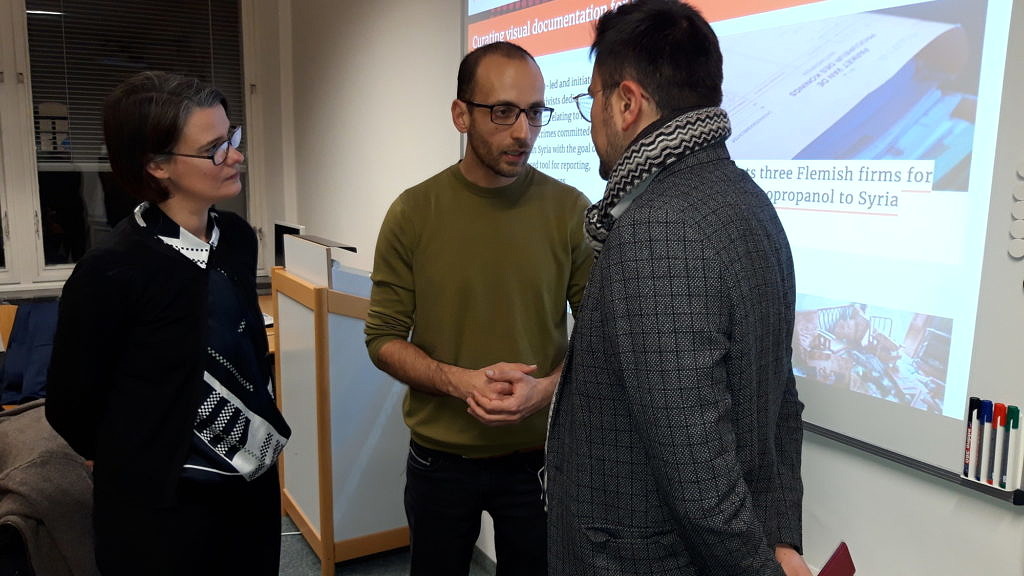On 16/17 December, the founder and director of the Syrian Archive, Hadi al-Khatib, introduced students of the MA Human Rights Program to open source investigations. He explained the methodology that his organization is developing on how the ever-expanding resources that are now available via multiple social media channels are being used to gather evidence in solving cases of human rights violations across the globe.
In conjunction with other readily available media and mapping applications, the students practiced analyzing sources of open-source data and were able to follow the path of this data from its collection to its use in human rights judicial proceedings. Using this cutting-edge, very current method of gathering data, which is used as evidence in human rights violations cases, the small international team at the Syrian Archive are changing the face of future human rights fact-finding missions.
During his stay in Erlangen he also met with the with CHREN Members.

On 16/17 December, the founder and director of the Syrian Archive, Hadi al-Khatib, introduced students of the MA Human Rights Program to open source investigations. He explained the methodology that his organization is developing on how the ever-expanding resources that are now available via multiple social media channels are being used to gather evidence in solving cases of human rights violations across the globe.
In conjunction with other readily available media and mapping applications, the students practiced analyzing sources of open-source data and were able to follow the path of this data from its collection to its use in human rights judicial proceedings. Using this cutting-edge, very current method of gathering data, which is used as evidence in human rights violations cases, the small international team at the Syrian Archive are changing the face of future human rights fact-finding missions.
During his stay in Erlangen he also met with the with CHREN Members.